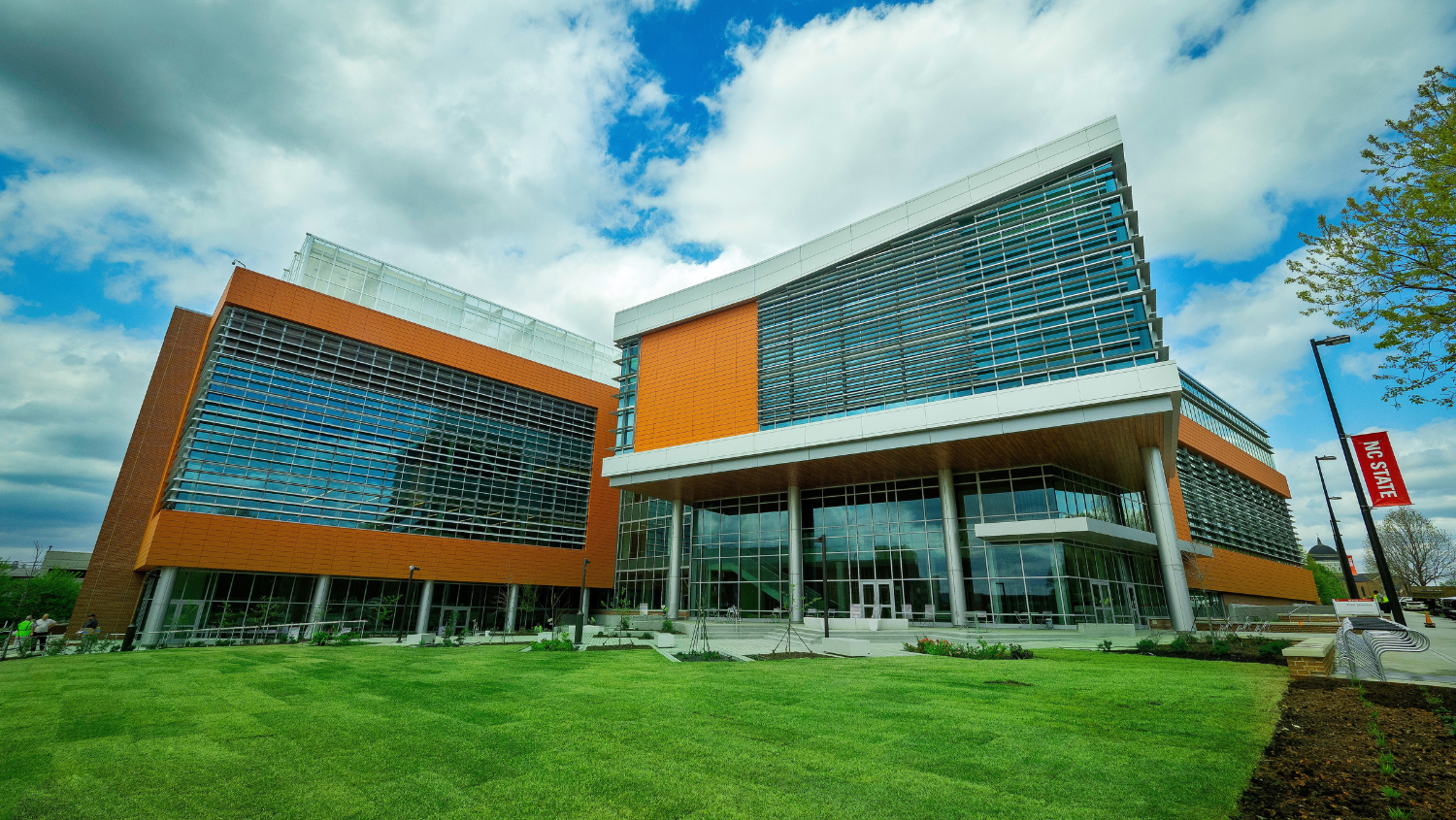Plant Sciences Building Achieves LEED Gold

The NC State Plant Sciences Building (PSB) has earned Leadership in Energy and Environmental Design (LEED) certification at the Gold level.
Awarded by the U.S. Green Building Council, this certification is a globally recognized symbol of sustainability achievement and leadership.
Located in the heart of NC State’s Centennial Campus, the building opened in April 2022 and promotes interdisciplinary research and collaboration with teams representing the College of Agriculture and Life Sciences, College of Engineering, College of Natural Resources, Wilson College of Textiles and the Golden LEAF Biomanufacturing Training and Education Center. It is a hub for cutting-edge research and innovation in agriculture.
With 185,000 square feet of space, including a 10,000 square foot conditioned rooftop research greenhouse, the Plant Sciences Building was designed with sustainability in mind.
Sustainability features include advanced energy metering, highly efficient lighting and automated window shades, central cooling and cogeneration plants, enhanced airside energy recovery and de-coupled heating and cooling systems.
The high-performance technologies incorporated into the building envelope design result in energy savings – an improvement of 20 percent over code.
The Plant Sciences Building also boasts outdoor test plots near the main entrance to showcase the importance of agriculture in North Carolina and highlight resilient crop varieties being developed on campus.
Other sustainability features of the building include:
- A series of bioretention cells and landscaping to capture, treat and slow runoff from the building during rain events
- Utilization of reclaimed water for irrigation and toilet flushing, and high-efficiency plumbing fixtures to reduce water consumption both indoors and outdoors
- Use of products and materials that have environmentally, economically and socially preferable life-cycle impacts
- Enhanced indoor air quality strategies, such as advanced commissioning to ensure systems perform as designed and improved ventilation
- Minimization of heat island effects by using light-colored nonroof measures and high-reflectance roofs
- Access to recycling and composting throughout the building
- Access to outdoor spaces for events and to the Wolfline campus bus system
Learn more about NC State’s built environment and its commitment to sustainability at sustainability.ncsu.edu/campus/buildings.